Virginia Giuffre has emerged as one of the most recognizable figures in the fight against sex trafficking and abuse of power. Her journey from victim to advocate has captivated global attention and sparked crucial conversations about accountability, justice, and resilience. As a survivor of Jeffrey Epstein’s trafficking network who dared to speak truth to power, Giuffre has transformed personal trauma into a platform for change. Most recently, concerning reports have emerged about her health following a serious accident, making this an opportune moment to examine her extraordinary life story and ongoing impact.
Early Life and Difficult Beginnings
Born Virginia Louise Roberts on August 9, 1983, in Sacramento, California, Giuffre’s childhood was marked by instability and challenges from an early age. When she was just four years old, her family relocated to Loxahatchee in Palm Beach County, Florida, where the foundation of her tumultuous youth was laid.
By her own account, Giuffre came from what she described as a “troubled home.” In interviews with media outlets, she has spoken candidly about experiencing sexual abuse at the age of seven, an experience that she says robbed her of her childhood. “I was just so mentally scarred already at such a young age, and I ran away from that,” she told BBC’s Panorama in 2019.
Her teenage years continued along a difficult path as she cycled through foster care and periods of homelessness. “I went from being in an abusive situation, to being a runaway, to living in foster homes,” Giuffre shared with the Miami Herald. By age 13, she was living on the streets, experiencing “nothing except for hunger and pain and abuse.”
During this vulnerable period, Giuffre fell victim to a 65-year-old sex trafficker named Ron Eppinger in Miami. She lived with him for approximately six months until authorities intervened. Eppinger was eventually raided by the FBI and pleaded guilty to charges including alien smuggling for prostitution, interstate travel for prostitution, and money laundering.
These early experiences of exploitation and vulnerability would tragically set the stage for her later encounter with Jeffrey Epstein and Ghislaine Maxwell.
Fateful Meeting with Epstein and Maxwell
In the year 2000, at age 17, Virginia was working as a spa attendant at Donald Trump’s private Mar-a-Lago club in Palm Beach, Florida. It was here, while reading a book about massage therapy, that she first encountered Ghislaine Maxwell, the British socialite and daughter of media tycoon Robert Maxwell.
Maxwell approached the teenager, noticed the book she was reading, inquired about her interest in massage therapy, and offered her a potential job working for Jeffrey Epstein as a traveling masseuse. She assured Giuffre that no experience was necessary, presenting what seemed like a golden opportunity to the vulnerable young woman.
When Giuffre arrived at Epstein’s Palm Beach mansion for what she believed would be a job interview, she found Epstein naked and lying down. Maxwell instructed her on how to massage him. During this initial meeting, Epstein and Maxwell questioned Giuffre about her background.
“They seemed like nice people so I trusted them, and I told them I’d had a really hard time in my life up until then—I’d been a runaway, I’d been sexually abused, physically abused,” Giuffre later recounted. “That was the worst thing I could have told them because now they knew how vulnerable I was.”
What Giuffre didn’t realize at the time was that this was the beginning of a sophisticated grooming process. Under the guise of training her as a professional massage therapist, Epstein and Maxwell were preparing her for sexual exploitation in a trafficking operation that would span multiple countries and involve some of the world’s most powerful men.
Years in Epstein’s Trafficking Network
Between 2000 and 2002, Virginia Giuffre became closely associated with Epstein and Maxwell, traveling between Epstein’s residences in Palm Beach and Manhattan, with additional trips to his Zorro ranch in New Mexico and his notorious private island, Little Saint James in the U.S. Virgin Islands.
During this two-and-a-half-year period, according to Giuffre’s accounts in the Miami Herald’s investigative series “Perversion of Justice,” she was trafficked by Epstein to provide massages and sexual services for him and a number of his powerful associates. Her testimony paints a disturbing picture of wealth and influence used to facilitate abuse with impunity.
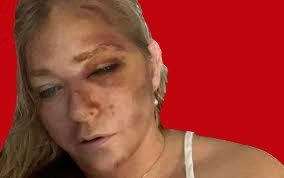
In her BBC interview, Giuffre described being “passed around like a platter of fruit” to Epstein’s wealthy and influential associates and taken around the world on private jets. “It was a really scary time in my life,” she recalled. “I wasn’t chained to a sink, but these powerful people were my chains.”
The abuse Giuffre experienced during this period would later form the basis of her legal claims and public testimony, as she worked to hold accountable not just Epstein and Maxwell but also the powerful figures who she alleges participated in her exploitation.
[IMAGE SUGGESTION: Timeline graphic showing key events from 2000-2002 during Giuffre’s time in Epstein’s circle]
Allegations Against Prince Andrew and Other Powerful Figures
Perhaps the most high-profile of Virginia Giuffre’s allegations involves Prince Andrew, the Duke of York. She has stated that in March 2001, when she was 17, Epstein brought her to London and introduced her to Prince Andrew. A now-famous photograph shows the prince with his arm around Giuffre’s waist, with Maxwell smiling in the background.
Giuffre has testified that after visiting a nightclub, Maxwell told her that she “had to do for Andrew what I do for Jeffrey.” In her interview with the BBC, she described this as a “wicked” and “really scary time” in her life, saying she “couldn’t comprehend how in the highest level of the government powerful people were allowing this to happen. Not just allowing but participating in it.”
According to Giuffre, she had three encounters with Prince Andrew. The first in London, the second at Epstein’s New York mansion, and the third allegedly involved an orgy on Little Saint James that included her, several underage girls from Eastern Europe, the Prince, and Epstein himself.
Beyond Prince Andrew, in court documents released from seal in 2019, Giuffre named several other prominent individuals that she claims Epstein and Maxwell instructed her to have sex with. These include hedge fund manager Glenn Dubin, attorney Alan Dershowitz, politician Bill Richardson, the late MIT scientist Marvin Minsky, lawyer George J. Mitchell, and MC2 modeling agent Jean-Luc Brunel.
Prince Andrew has consistently denied ever meeting Giuffre, claiming that the events she described “didn’t happen,” despite the photographic evidence showing them together. Spokespersons for the British royal family have stated that “any suggestion of impropriety with underage minors is categorically untrue.” Similarly, many of the other men named have denied the allegations against them.
Escape and Building a New Life
In September 2002, at the age of 19, Virginia traveled to Thailand to attend the International Training Massage School in Chiang Mai. Maxwell had provided her with tickets for the trip and instructed her to meet with a specific Thai girl to bring back to the United States for Epstein. This trip, however, would become her path to freedom.
While at the massage school in Thailand, Giuffre met Robert Giuffre, an Australian martial arts trainer. The two quickly fell in love and married just ten days after meeting. Instead of returning to Epstein as planned, she contacted him to inform him that she would not be coming back.
Virginia and Robert Giuffre started a new life in Australia, breaking off contact with both Epstein and Maxwell. For five years, they lived quietly while starting a family. Today, the couple has three children together and has built a life in Perth, Australia, where they reportedly live in a large house on the coast.
This period of relative peace and healing would last until Giuffre made the courageous decision to come forward publicly with her experiences—a decision that would thrust her into the global spotlight but also help expose a vast network of abuse and exploitation.
[IMAGE SUGGESTION: Photo of the famous picture showing Prince Andrew with his arm around Virginia Giuffre, with Ghislaine Maxwell in the background]
Legal Battles and Pursuit of Justice
Virginia Giuffre’s pursuit of justice through legal channels has been extensive and multifaceted. In May 2009, she filed a civil lawsuit against Jeffrey Epstein, which was settled for $500,000. This settlement amount remained confidential until January 2022, when it became public knowledge during legal proceedings related to her case against Prince Andrew.
In January 2015, Giuffre filed court papers in Florida stating that Epstein had trafficked her to Prince Andrew and Alan Dershowitz. In a sworn affidavit, she claimed Maxwell worked as Epstein’s madam. However, in April 2015, a federal judge ruled that Giuffre could not join the federal Crime Victims’ Rights Act lawsuit, and her affidavit was stricken from the case.
Following public statements by Ghislaine Maxwell that questioned her credibility, Giuffre filed a defamation lawsuit against Maxwell in September 2015 in federal court in New York. After extensive legal confrontation, the case was settled under seal in June 2017, with Maxwell reportedly paying Giuffre “millions.”
In April 2019, Giuffre filed a federal civil defamation lawsuit against Alan Dershowitz in New York. She was initially represented by David Boies, but Dershowitz had him removed from the case, claiming that members of the law firm could be called to witness in the trial. She was subsequently represented by lawyer Charles Cooper.
Perhaps most notably, in August 2021, Giuffre initiated a lawsuit against Prince Andrew in New York, accusing him of “sexual assault and intentional infliction of emotional distress.” The lawsuit sought unspecified damages and was brought before New York federal judge Lewis A. Kaplan. In January 2022, Giuffre’s former boyfriend, Anthony Figueroa, stated on “Good Morning Britain” that Giuffre had told him Epstein would take her to meet Prince Andrew, and that she was “really nervous and scared because she didn’t know how to react to it.” The prince and Giuffre reached a ‘settlement in principle’ in early 2022.
These legal battles have been instrumental in bringing attention to Epstein’s sex trafficking ring and the involvement of powerful individuals. The unsealing of documents from Giuffre’s earlier civil suit against Maxwell, ordered by the United States Court of Appeals for the Second Circuit on July 2, 2019, further implicated Epstein, Maxwell, and a number of their associates. The first batch of these documents was released to the public on August 9, 2019, and notably, Epstein was found dead in his Manhattan prison cell the following day.
Becoming an Advocate for Survivors
Virginia Giuffre’s decision to speak out publicly and begin advocating for victims of sex trafficking was sparked by a deeply personal milestone—the birth of her daughter on January 7, 2010. This event gave her the courage to come forward, despite the risks involved in challenging powerful individuals.
Her story was first publicized in March 2011 by the Mail on Sunday, which included the now-famous photograph showing Prince Andrew with his arm around her at Maxwell’s house in London. FBI agents made contact with Giuffre at the US consulate in Sydney in 2011, shortly after she went public with her allegations against Epstein.
In December 2014, Giuffre established the framework for her organization Victims Refuse Silence, which was registered as a 501(c)(3) non-profit organization in 2015. The objective of this organization is “to help survivors surmount the shame, silence, and intimidation typically experienced by victims of sexual abuse, and to help others to escape becoming victims of sex trafficking.”
For her organization, Giuffre chose imagery of a blue Morpho butterfly to symbolize the transformation and empowerment that occurs when a victim becomes a survivor. Blue is the international color of human trafficking awareness, and the United States has designated January as Human Trafficking Awareness Month, with January 11 listed as National Wear Blue Day.
In November 2021, Giuffre’s charity was relaunched under the name Speak Out, Act, Reclaim (SOAR). The organization focuses on “educating and advocating for victims of trafficking,” continuing Giuffre’s mission to support survivors and prevent future exploitation.
Through her advocacy work, Giuffre has transformed her own painful experiences into a force for positive change, giving voice to survivors and working to ensure that powerful abusers are held accountable.
Recent Health Crisis and Current Situation
As of March 31, 2025, concerning news has emerged about Virginia Giuffre’s health. According to multiple reports, Giuffre has shared that she is in critical condition following an accident involving a school bus. In posts shared on social media, she stated that she is suffering from kidney failure after her vehicle was struck by a speeding school bus.
Giuffre shared an image of herself from a hospital room, showing visible bruises, and stated: “I’ve entered renal failure; they’ve informed me I have four days left. I’m being transferred to a specialized urology hospital.” She expressed a desire to see her children one last time, suggesting there may be some family estrangement. “I’m prepared to go, but not until I have the chance to see my children one last time. However, you know what they say about wishes.”
In her post, she described the accident: “This year has had the most unfortunate beginning, but I won’t overwhelm anyone with the specifics. However, I feel it is crucial to mention that when a school bus driver approaches you at a speed of [60 mph] as we were decelerating for a turn, no matter what your vehicle is constructed from, it might as well be made of tin.”
Her father, Sky W. Roberts, has commented on her situation, expressing concern and offering support. He told The Telegraph that his daughter has been struggling with depression and longs to reconnect with her children. “She’s not in a good place. She feels down because she misses her kids,” the retired engineer said. He also mentioned the possibility of seeking a second medical opinion, suggesting that “another doctor might provide alternative options.”
The exact time and location of the accident remain unclear, and as this is a developing situation, further details may emerge in the coming days.
The Media’s Role in Virginia Giuffre’s Story
The media has played a complex and pivotal role in Virginia Giuffre’s journey. On one hand, media platforms have provided her with the opportunity to share her story and reach a global audience. Her October 2019 interview for BBC’s Panorama, which aired on December 2 that year, was particularly impactful in shifting public opinion regarding Prince Andrew’s involvement with Epstein.
On the other hand, Giuffre has had to navigate intense scrutiny, occasionally hostile questioning, and attempts to discredit her testimony. The coverage of her story has sometimes focused more on sensationalism than on the systemic issues of exploitation and abuse that her experiences highlight.
Despite these challenges, Giuffre has used media appearances strategically to advocate for herself and other survivors. She has been featured in documentaries like “Jeffrey Epstein: Filthy Rich” (2020) and “Ghislaine Maxwell: Filthy Rich” (2022), using these platforms to reach wider audiences with her message about the reality of sex trafficking and the importance of holding perpetrators accountable.
The media attention surrounding Giuffre’s cases has also helped bring broader awareness to the issue of sex trafficking, highlighting how vulnerability can be exploited and how wealth and power can be used to silence victims. Through consistent engagement with the media, Giuffre has helped shape the narrative around these issues, ensuring that survivors’ voices remain central to the conversation.
Legacy and Impact on Addressing Sex Trafficking
Virginia Giuffre’s courage in coming forward with her experiences has had far-reaching consequences for conversations about sex trafficking, power dynamics, and accountability. By putting a face and a personal story to the abstract concept of sex trafficking, Giuffre has helped humanize an issue that can sometimes feel distant or overwhelming.
Her willingness to challenge powerful individuals—from Jeffrey Epstein and Ghislaine Maxwell to Prince Andrew and others—has demonstrated that no one should be above accountability when it comes to sexual exploitation. Through her persistent pursuit of justice, she has helped expose a network of exploitation that might otherwise have remained hidden.
Moreover, through her advocacy work with Victims Refuse Silence and later SOAR, Giuffre has created pathways for other survivors to find support, share their stories, and reclaim their agency. The blue butterfly symbol she chose for her organization represents the possibility of transformation—from victim to survivor to advocate—a journey that Giuffre herself has undertaken.
The legal cases she has pursued, while not always resulting in the outcomes she sought, have nonetheless contributed to a broader understanding of how trafficking operations work and how they can be enabled by wealth, power, and influence. The documents unsealed as a result of her lawsuit against Maxwell have provided valuable insights into Epstein’s network and methods.
Perhaps most significantly, Giuffre’s story highlights the importance of listening to and believing survivors. Despite facing skepticism, dismissal, and counterattacks from powerful individuals and institutions, she has persisted in telling her truth. In doing so, she has inspired others to come forward and has contributed to a cultural shift in how we understand and respond to allegations of sexual misconduct.
The Psychological Journey of Trauma and Resilience
Virginia Giuffre’s story is not just about the external battles she has fought in courtrooms and media interviews; it’s also about an internal journey of processing trauma and building resilience. From her early childhood abuse to her exploitation by Epstein’s network to her emergence as an advocate, Giuffre has demonstrated remarkable psychological strength.
Trauma experts recognize that the path from victimization to healing is rarely linear. For Giuffre, the decision to speak out publicly about her experiences came several years after escaping Epstein’s network—a common pattern for survivors who often need time and distance to process their experiences before they can articulate them publicly.
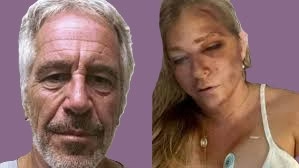
Her advocacy work with SOAR reflects an understanding that healing often involves helping others. By creating resources for fellow survivors, Giuffre has transformed her own painful experiences into a source of support and hope for others facing similar struggles.
The courage required to confront powerful abusers publicly cannot be overstated. Each time Giuffre has given testimony, filed a lawsuit, or spoken to the media, she has had to revisit traumatic experiences and face potential re-traumatization. Her persistence in these efforts speaks to both her personal resilience and her commitment to a larger cause.
As she now faces health challenges, the psychological dimensions of Giuffre’s journey continue to evolve. Her expressed desire to reconnect with her children underscores the personal stakes that exist alongside her public advocacy—a reminder that behind every survivor-advocate is a full human being with private struggles, hopes, and connections.
Lessons from Virginia Giuffre’s Story
Virginia Giuffre’s journey offers several important lessons for society’s approach to sex trafficking, abuse of power, and survivor advocacy.
First, her story highlights the critical importance of recognizing vulnerability. Giuffre’s early life experiences of abuse and instability created vulnerabilities that were later exploited by Epstein and Maxwell. This pattern underscores the need for stronger support systems for at-risk youth and greater awareness of the factors that can make individuals susceptible to trafficking.
Second, Giuffre’s experiences demonstrate how wealth and power can be used to facilitate abuse and silence victims. Epstein’s network operated with impunity for years, protected by his connections to powerful individuals and institutions. This reality calls for greater accountability mechanisms that can effectively challenge such abuses of power.
Third, the media coverage of Giuffre’s story reveals both the potential and limitations of public attention to issues of sexual violence. While media platforms provided Giuffre with vital opportunities to share her story, the sensationalism that sometimes characterized this coverage risked obscuring the systemic issues at stake.
Fourth, Giuffre’s advocacy work with SOAR illustrates the power of survivor leadership in anti-trafficking efforts. By centering the voices and experiences of survivors, such initiatives can develop more effective and trauma-informed approaches to both prevention and support.
Finally, the legal battles Giuffre has pursued highlight both the possibilities and limitations of seeking justice through the courts. While these cases have brought important information to light and secured some measure of accountability, they have also involved significant personal costs and have not always delivered the outcomes sought.
Conclusion: The Continuing Importance of Virginia Giuffre’s Voice
Virginia Giuffre’s journey from a vulnerable teenager to a global advocate for survivors of sex trafficking is both remarkable and instructive. Her story illuminates the complex interplay of vulnerability, exploitation, resilience, and advocacy. From her early encounters with Epstein and Maxwell to her legal battles against some of the world’s most powerful individuals, Giuffre has demonstrated extraordinary courage in the face of immense challenges.
As concerns about her health continue to develop, her legacy as a survivor-advocate remains secure. Through her willingness to speak truth to power, Giuffre has helped expose a network of exploitation that might otherwise have remained hidden. Through her nonprofit work, she has created resources for other survivors seeking support and justice.
Virginia Giuffre’s story reminds us of the importance of creating systems that protect the vulnerable, hold the powerful accountable, and provide pathways to healing for those who have experienced trauma. As we reflect on her journey, we are called to consider our own roles in creating a world where exploitation is less likely and where survivors are more likely to be heard, believed, and supported.
In an era where powerful voices still often drown out those of survivors, Virginia Giuffre’s persistence in telling her truth serves as both an inspiration and a challenge. Her journey continues to unfold, but her impact on our collective understanding of sex trafficking, power, and resilience is already profound and lasting.
Read more at worldsinsight
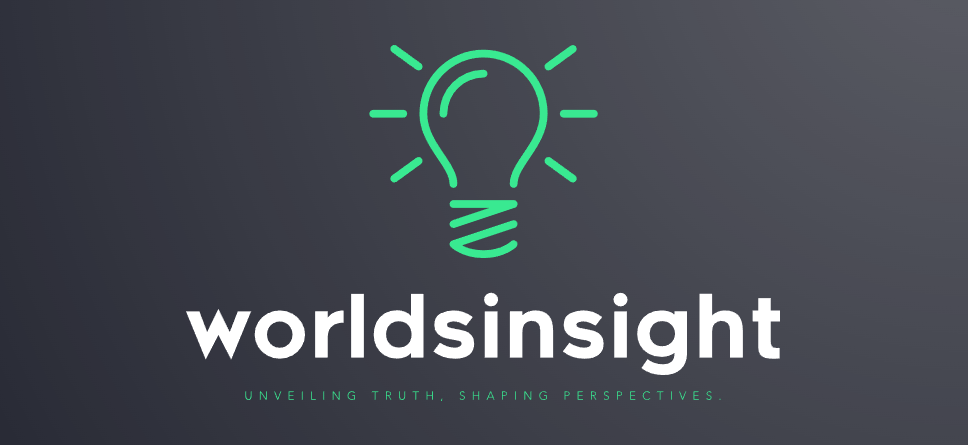


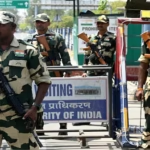
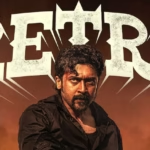


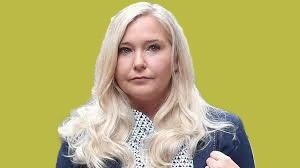


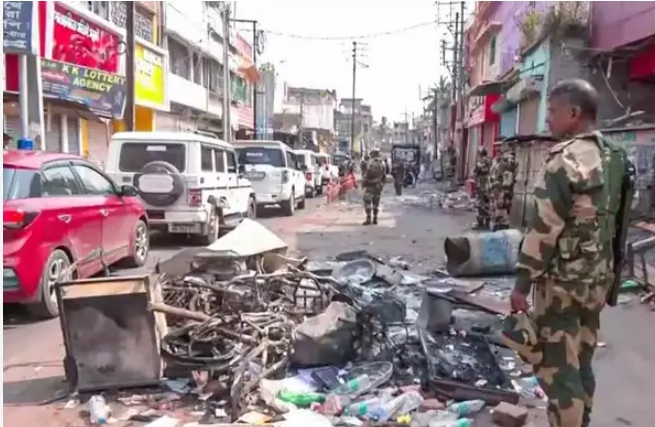
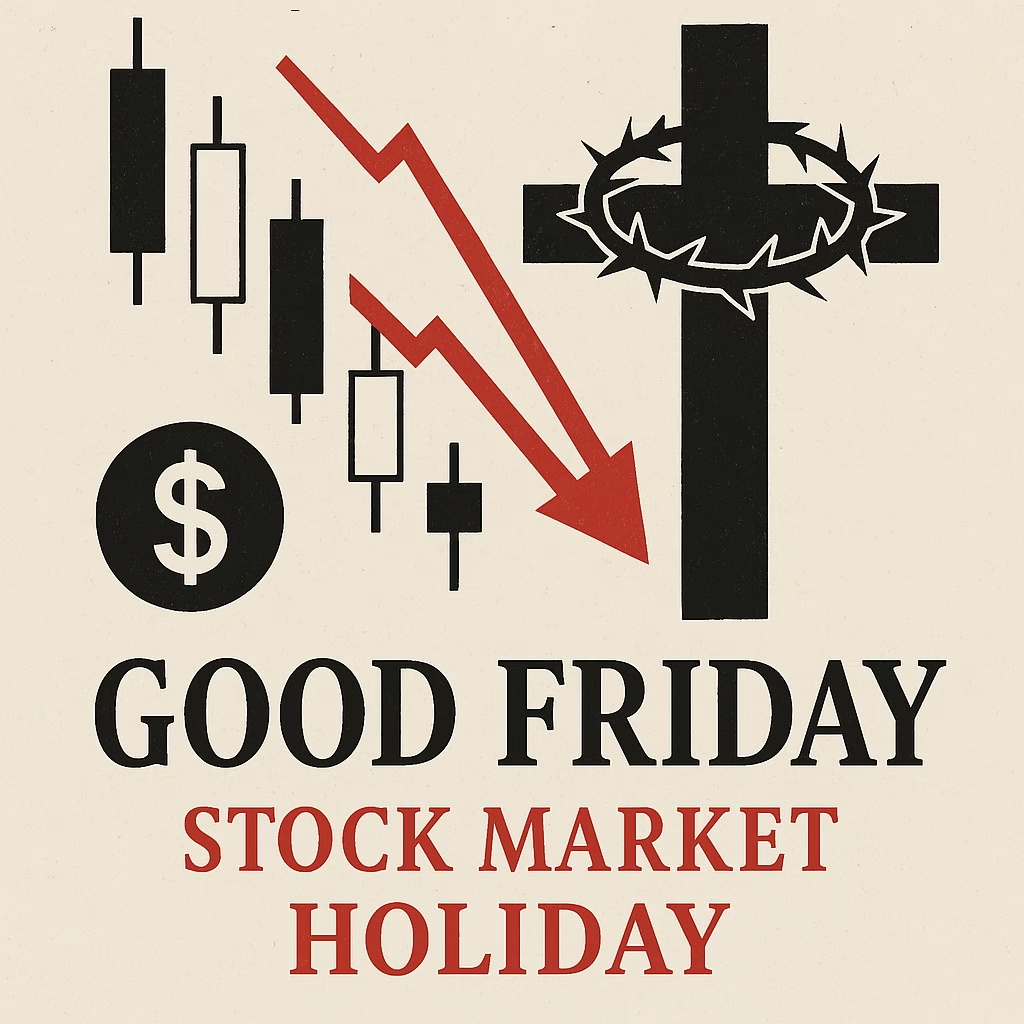
Can you be more specific about the content of your article? After reading it, I still have some doubts. Hope you can help me.